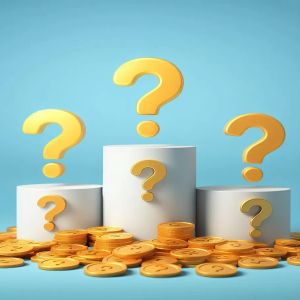Market Pulse
In a significant stride towards bridging traditional finance with the burgeoning digital asset economy, Dubai’s leading authorities have announced a pioneering pilot program for gold tokenization. The Dubai Multi Commodities Centre (DMCC), a global hub for trade and enterprise, is collaborating with the Virtual Assets Regulatory Authority (VARA) to explore and implement the tokenization of gold, marking a crucial moment for the integration of real-world assets (RWAs) onto blockchain technology. This initiative underscores Dubai’s ambition to solidify its position as a global leader in the digital assets space, providing a regulated framework for innovation that could reshape how physical commodities are traded and owned.
The Dubai Initiative: Fostering Innovation in RWA Tokenization
The collaboration between DMCC and VARA is not merely a technical exercise but a strategic move designed to set new standards for the tokenization of physical assets. The pilot program aims to leverage blockchain’s inherent benefits—such as transparency, immutability, and fractional ownership—to enhance the accessibility and liquidity of gold. By creating a regulated environment for digital gold, Dubai seeks to attract both institutional and retail investors, offering a secure and efficient alternative to traditional gold markets.
- Enhanced Accessibility: Tokenized gold can be bought, sold, and transferred in smaller denominations, making it more accessible to a broader range of investors.
- Increased Liquidity: Digital representation facilitates quicker transactions and potentially deeper market liquidity compared to physical gold or traditional instruments.
- Unprecedented Transparency: Blockchain ledgers provide a clear and immutable record of ownership and transactions, reducing fraud and increasing trust.
- Operational Efficiency: Automating processes through smart contracts can reduce costs and expedite settlement times.
Tokenized Gold: The Evolution of a Timeless Asset
Gold has long been a bedrock of value, serving as a safe haven asset and a store of wealth. Tokenization transforms this ancient commodity for the digital age, representing physical gold on a blockchain. Unlike traditional gold ETFs, which often track the price of gold without direct physical redemption rights for all investors, tokenized gold typically offers direct, auditable backing by physical reserves. This pilot aims to further refine this model under a robust regulatory umbrella, differentiating it from purely speculative digital assets by linking it directly to a tangible, universally recognized commodity.
The success of such initiatives can set a precedent for other precious metals and commodities, potentially unlocking trillions of dollars in value by bringing illiquid assets onto the blockchain. It offers a new paradigm where the intrinsic value of physical assets meets the technological efficiency and global reach of decentralized ledgers.
Regulatory Framework and Global Impact
VARA’s involvement is critical, providing the necessary regulatory clarity and oversight that instills confidence in market participants. As one of the world’s first independent regulators for virtual assets, VARA is at the forefront of crafting frameworks that balance innovation with investor protection. This pilot reflects a strategic approach by Dubai to develop a comprehensive ecosystem where virtual assets can thrive responsibly.
This regulated approach to gold tokenization could serve as a blueprint for other jurisdictions grappling with how to integrate blockchain technology into their financial systems. It signals a maturation of the digital asset landscape, moving beyond speculative trading to practical, asset-backed applications that have real-world utility and economic impact. The global financial community will be keenly watching Dubai’s progress, as it could catalyze similar initiatives worldwide.
Conclusion
Dubai’s gold tokenization pilot, spearheaded by DMCC and VARA, is more than just a technological experiment; it is a profound statement about the future of finance. By embracing the tokenization of a historically significant asset like gold within a clear regulatory framework, Dubai is not only enhancing its own digital economy but also providing a tangible example of how blockchain can seamlessly integrate with and revolutionize traditional markets. This landmark initiative is poised to open new avenues for investment, liquidity, and transparency, charting a promising course for the broader adoption of real-world assets on the blockchain.
Pros (Bullish Points)
- Enhanced regulatory clarity in a major financial hub could accelerate institutional adoption of tokenized assets.
- Paves the way for further Real-World Asset (RWA) tokenization, bringing increased liquidity and accessibility to traditional markets.
Cons (Bearish Points)
- The success of the pilot depends heavily on execution and adoption, which can face technical and market challenges.
- Broader regulatory harmonization globally will still be required for widespread, seamless international adoption of tokenized gold.



